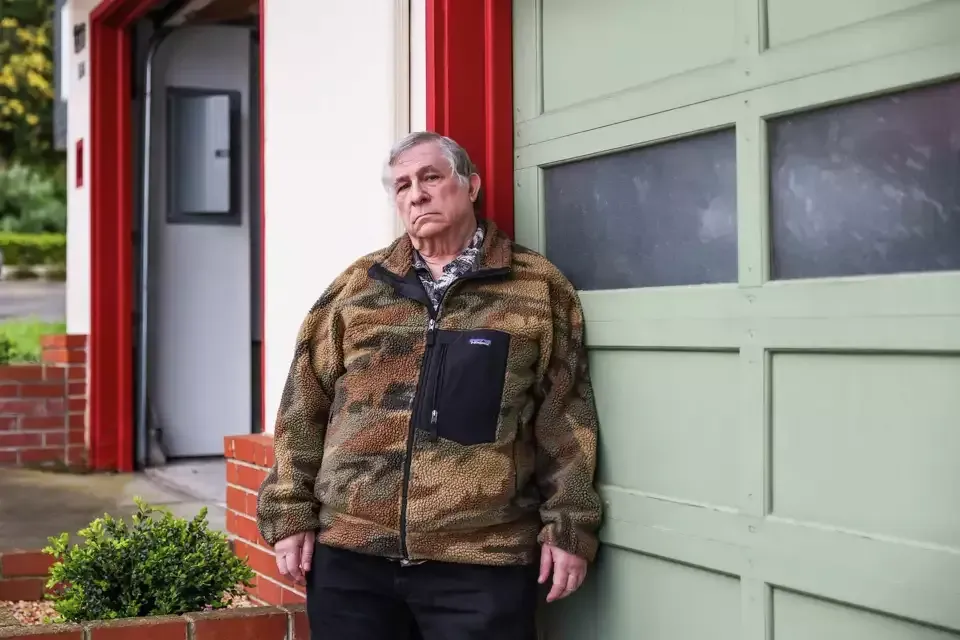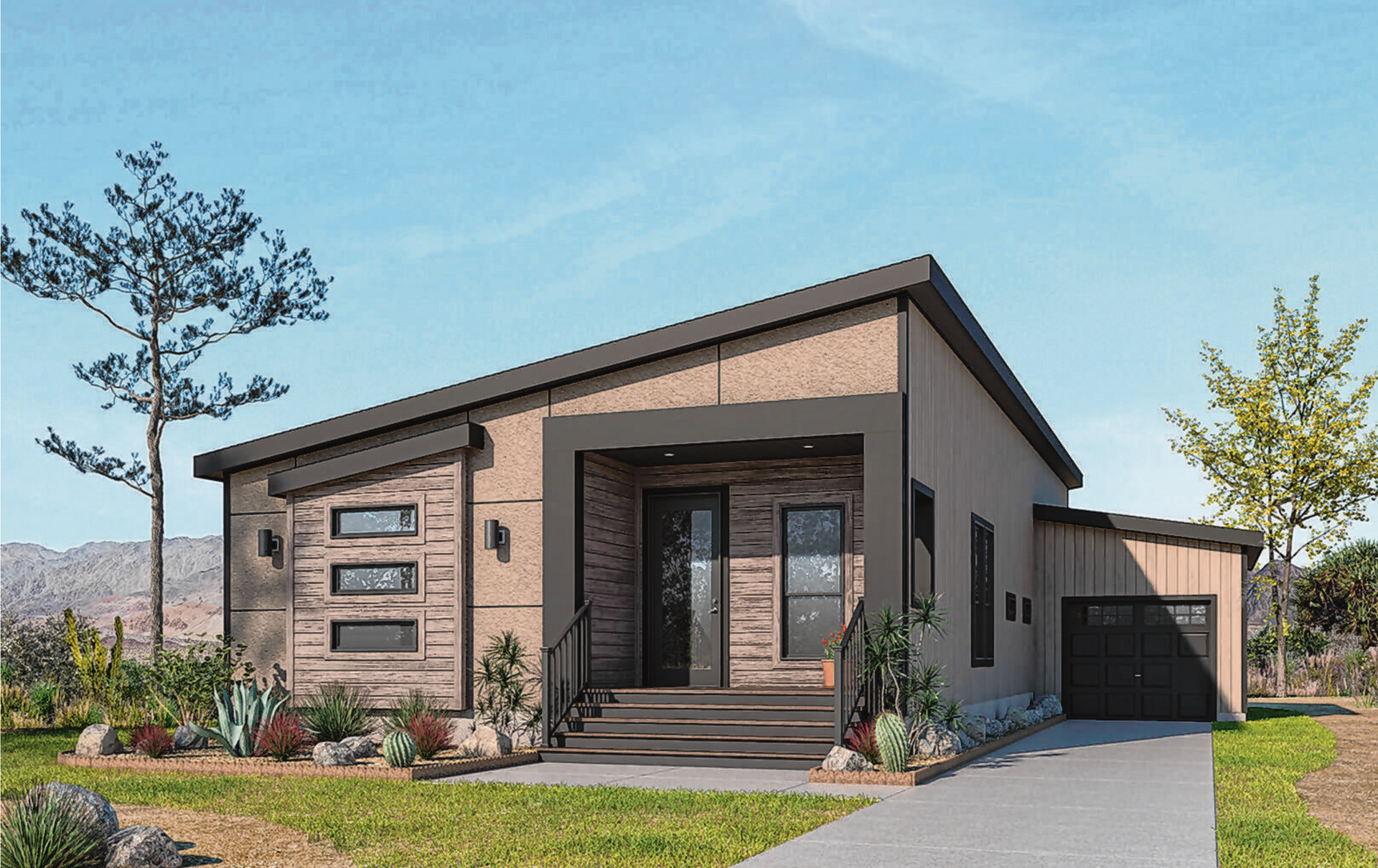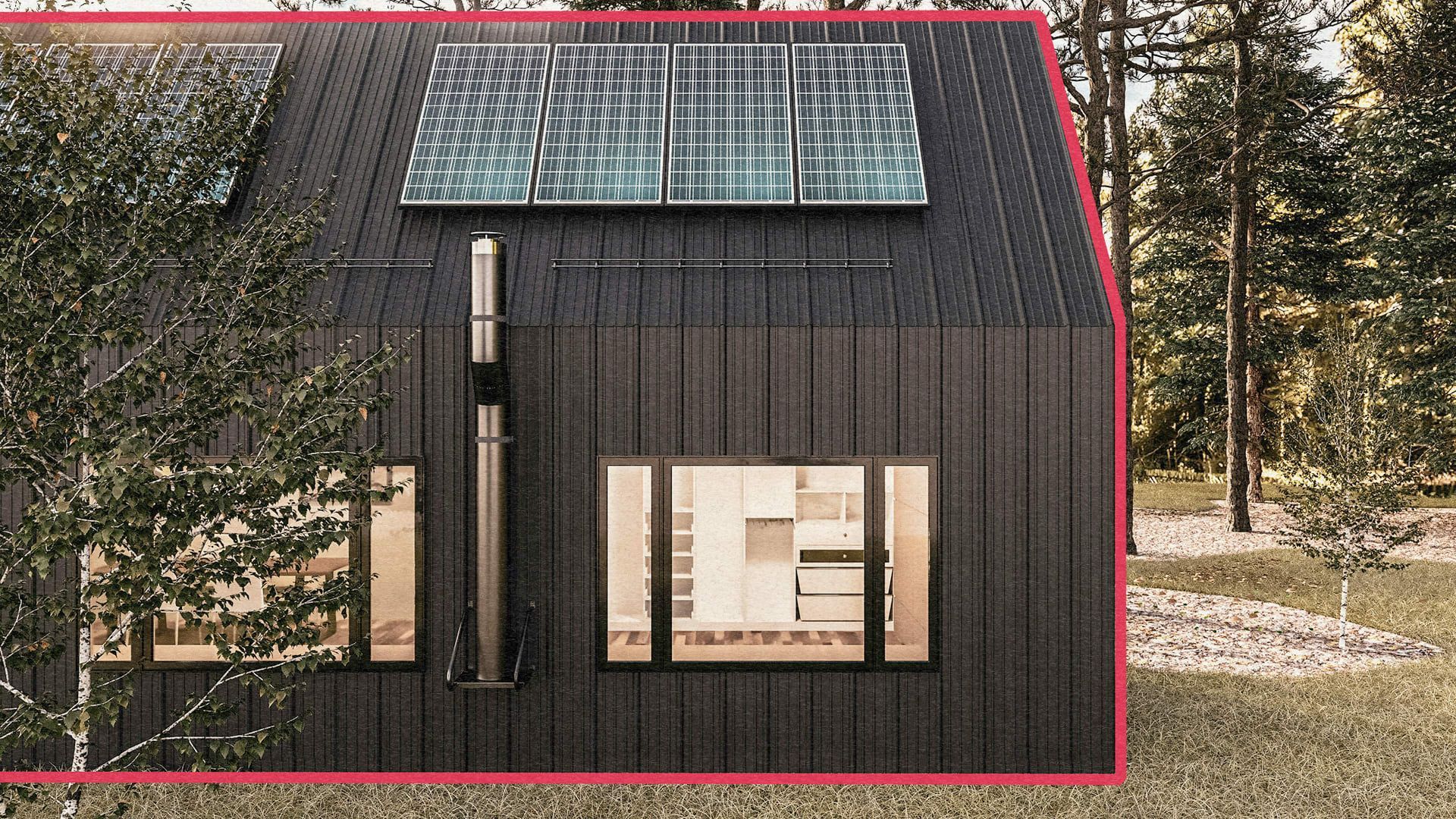Perpetual Homes is Leading the Way asCalifornians Turn to ADUs Amidst Housing Crisis
Enhancing your property values and providing much-needed housing solutions for family members and renters have put accessory dwelling units (ADU) in the spotlight and, most recently, in proposed legislation.
Low inventory, high prices, and soaring interest rates have made Californians turn to the ADU as a creative solution. Danville-based Perpetual Homes, one of the most successful companies leading the solution, is here to help.
Since 2019, Perpetual Homes and its team of real estate, home building professionals, civil engineers, architects, and the founder’s over four decades of experience have been committed to offering sustainable turn-key backyard homes throughout the Bay Area. The team manages the project from the initial site inspection, permits, and site preparation to construction, utility connections, site cleanup, and final inspections.
Perpetual Homes Founder and President Katherine Anderson’s vision has become a reality: Creating factory- built award-winning designs with eco- friendly and sustainable materials.
The proposed legislation (California’s AB 1033) would further improve and enhance current ADU laws. On the coattail of SB9, a state law effective January 1, 2022, that allows the construction of up to two dwelling units on a single-family lot, AB 1033, if passed, would allow California cities and counties to decide if they want residents to have the option to sell their ADUs as a separate property from their primary residence.
According to Assembly member Phil Ting, the bill’s author, “the lack of homeownership opportunities in most California communities for working families is contributing to the State’s growing population of renters and driving families out of state, “where they can afford to buy a home.
“Many neighbor- hoods have become de-facto gated communities, with median home prices of $700K to $1M keeping out all but a small percentage of Californians from ever dreaming of home ownership, reducing the state’s population and harming our economy,” he writes. He adds, “The absence of avail- able homes for purchase at rates affordable to moderate-income working families bars wealth- building and housing stability for Californians harmed by historic discriminatory housing policies.”
By repealing the current law prohibiting the separate conveyance of ADUs, AB 1033 “would allow cities and counties the freedom to pursue homeownership programs and to create a path to wealth-building for families,” he adds.
Up to this point, the only authority to convey ADUs separately from their primary residence was in a relatively narrow set of circumstances for ADUs built or developed by a qualified nonprofit corporation with a tenancy in common agreement.
The Senate Housing Committee approved AB 1033 at its June 20, 2023, hearing on a vote of 8-1. The Senate Governance and Finance Committee is hearing AB 1033 as the commit- tee of second reference this month. Supporters, including the California State Association of Counties, outnumber the opposition by more than 10 to 1.
Another piece of legislation currently under review is AB 976, which seeks to permanently eliminate owner occupancy restrictions for ADUs that presently exist in cities and counties. These restrictions, which prohibit the requirement of the property owner’s occupancy to either the accessory dwelling unit (ADU) or the primary residence, are set to expire soon. However, this new law aims to remove these restrictions permanently.
Built on existing properties, the ADUs expand the housing supply and tend to be used as lower-cost rentals, which play a key role in increasing the housing supply in neighbor- hoods across California. According to a report from UC Berkeley’s Terner Center for Housing Innovation, homeowners cite the ability to offer ADUs for rent as one of the main reasons they build these types of homes.
“Rental income can serve as an important source of financial security,” the report reads, and “since ADU rent typically offsets the cost of construction, ADUs are more accessible for lower-income homeowners.” AB 976 passed the State Assembly last May with a 54-0 vote. It passed the Senate Housing Committee in June and now heads to the Senate Governance and Finance Committee.
Turn to Perpetual Homes when considering adding an ADU to your property. Sizes range from a 430-square-foot model with one bedroom and one bath to a 1,200-square-foot model with three bedrooms and two baths.
Take a virtual tour through several models by visiting
perpetualhomesadu.com or call Perpetual Homes at
925-309-0205 for more information.
Content provided by Monica Lander
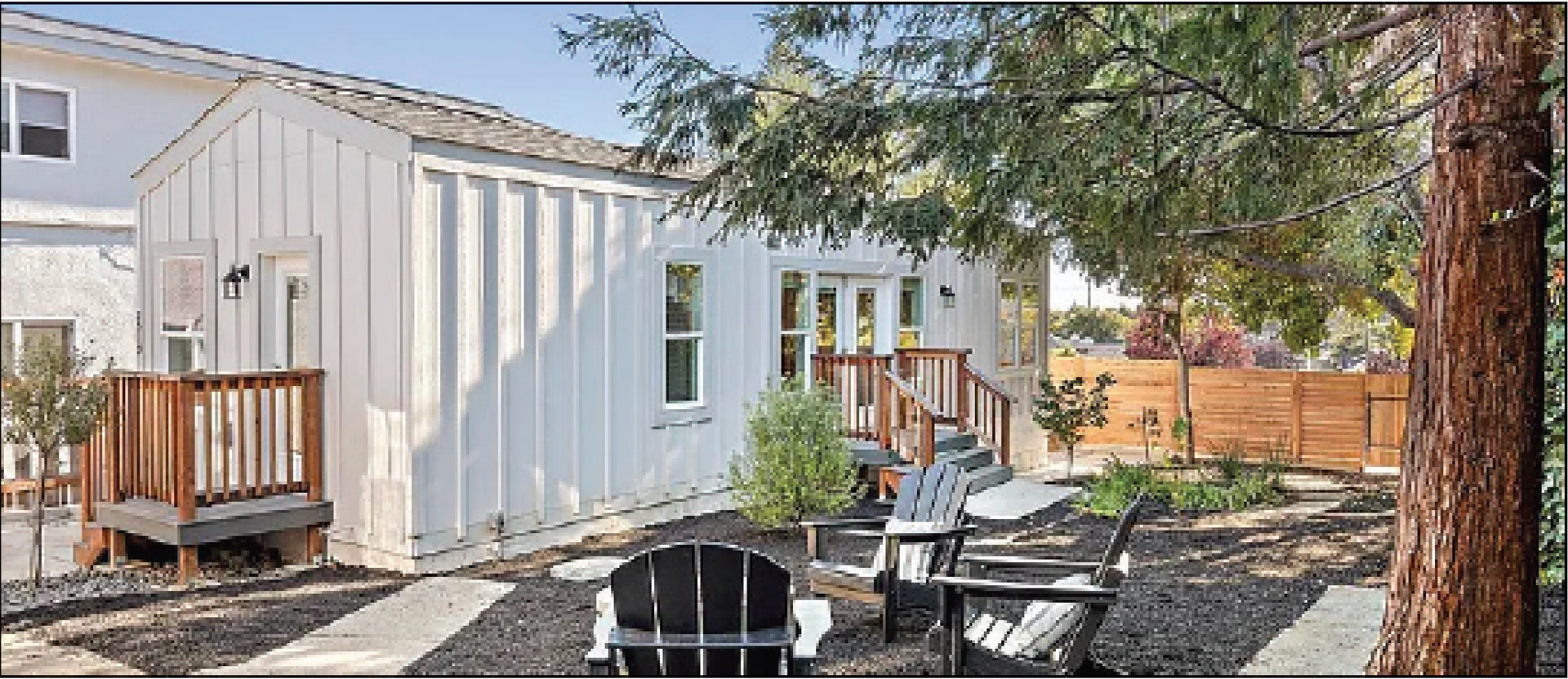
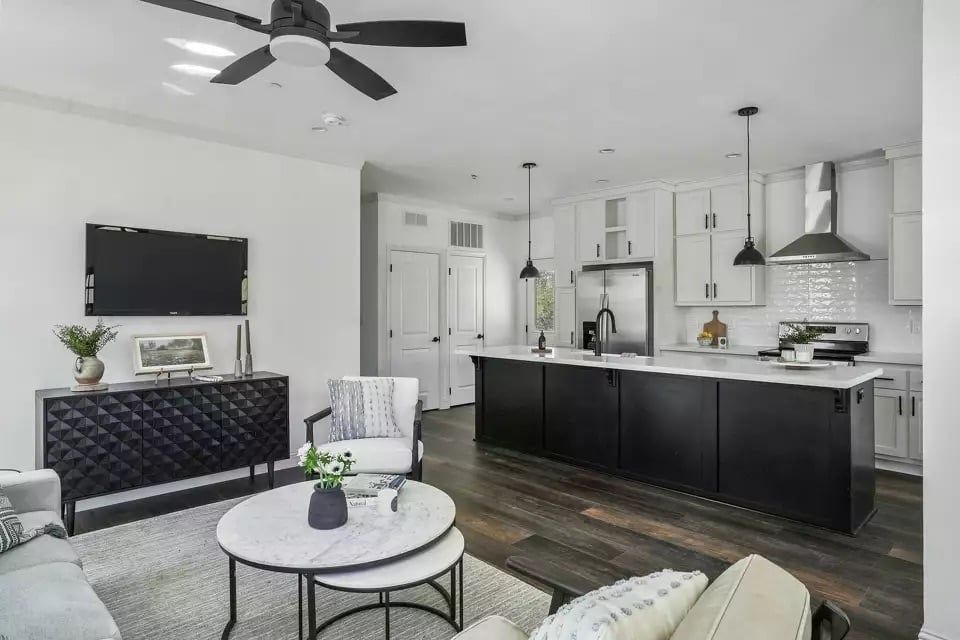


Please Note: All sizes and dimensions are nominal or based on approximate builder measurements. 3D Tours and photos may include dealer and/or factory installed options. Perpetual Homes reserves the right to make changes due to any changes in material, color, specifications, and features at any time without notice or obligation. Homes may require optional features to be eligible for financing, consult with your retailer for more information.
T: (925) 309 0205 E: Perpetualhomesadu@gmail.com
DL#1557865
**Authorized Skyline Homes Dealer
Contact Us
We will get back to you as soon as possible.
Please try again later.
Perpetual Homes representations and the actual look of your ADU may vary. The measurements provided will make up the floor plan approximating the length and width from exterior wall to exterior wall. We will continue to invest in our product and process improvements. Our models, floor plans, specifications, dimensions, features, materials, appliances, furniture, and availability displayed on our website and/or other marketing platforms are subject to change.
The project timelines and schedules provided are based on our research and knowledge but it does not account for unforeseen city, town, county, state and/or other municipal agency (collectively the Government) processes such as, but not limited to, appeals, special permits, or processing delays. The portions of the timelines relating to the Government can and will change without notice. The project timeline/process is based on the assumption that the customer will be available and able to make quick decisions. Perpetual Homes cannot guarantee and/or be responsible for the time it takes the Government to complete its checks and verifications. Construction timelines are estimates and cannot be guaranteed by Perpetual Homes.
For the avoidance of doubt, Perpetual Homes is not a licensed general contractor. All of the construction jobs associated with the project which require a licensed general contractor will be performed by a licensed contractor who will engage with the property owner directly with applicable law.


